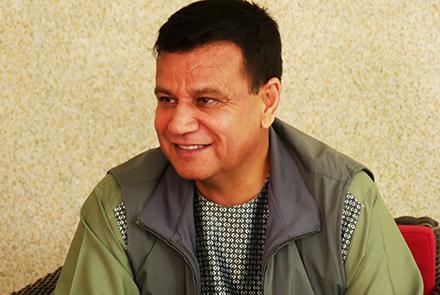The new speaker of the Afghan parliament, who was elected to the post after a month-long rift between lawmakers, vowed to expedite legislation and remove “deadlocks” in this regard.
Publish dateSaturday 6 July 2019 - 18:42
Story Code : 187896
The 56-year-old Rahmani has graduated from the Military University of the Ministry of Defense of the Russian Federation and has served as head of the National Economy Commission of the Wolesi Jirga, the Lower House of Parliament for eight years – after he was first elected as representative of Parwan residents in the parliament.
He has also served as head of the chamber of commerce of Parwan province and head of a local council in Bagram district.
“The deadlock is over. You see that the parliament activities are normal. We will continue our activities based on the Constitution,” Rahmani said.
He said that he will use his expertise in his new task as speaker of the parliament.
“We have approved many laws and we have monitored government’s activities and it was a good experience which will help me in my new position as speaker of the parliament,” Rahmani said, pointing to his service as an MP from Parwan from 2010 to 2018.
“He [Rahmani] should protect harmony in the parliament. The parliament should be united and should serve the people of Afghanistan,” said Shir Mohammad Akhundzada, an MP.
On June 29, lawmakers elected Rahmani as the speaker of the seventeenth legislative round of the Afghan parliament by giving him 136 votes.
In the latest round of voting on June 29, Rahmani and Khan Mohammad Wardak, an MP from Wardak province, were competing for the seat where 245 lawmakers were present in the house to vote for them.
Based on the Saturday's quorum, 123 votes were required for a winning candidate. In this round, Rahmani got 136 votes and succeeded to be elected as the new speaker of the house.
His rival, Wardak, got 96 votes. Meanwhile, 2 votes were white, and 11 votes were announced invalid.
Tensions over Election of Parliament Speaker
The disagreements between two groups of MPs over the election of the speaker of the Wolesi Jirga started on May 18 when they voted for Mir Rahman Rahmani and Kamal Nasir Osuli, an MP from Paktia – for the seat of the speaker.
After the voting, the former acting speaker of the house Atta Mohammad Dehqanpoor announced Rahmani as the new speaker as he got 123 votes and his rival got 55 votes. However, the result was not accepted by Osuli and his supporters.
Legislators close to Rahmani said the discussions have ended because Rahmani was elected as Parliament speaker by a majority of votes.
On the election day on May 18, there were 247 MPs when the voting started and based on this quorum, 124 votes were needed for a winning candidate, but 244 MPs cast their votes at the end of voting. Based on the last quorum, 123 votes were needed for a winning candidate but the missing votes from the total 247 MPs turned the process controversial.
The problem continued and later on, the lawmakers formed a 27-member committee to resolve the disputes.
Finally, the MPs held voting for the house speaker two times in which no one could get the 50+1 required vote for the seat.
Ultimately, Rahmani, who got the highest vote in the first round, attended the voting with Wardak, who got the highest vote in the second round of the voting on June 27.
Critics said that almost 200 draft laws are waiting for MPs decision to be verified and discussed upon.
Source : Tolo News
avapress.net/vdci3yazqt1avv2.ilct.html
Tags
Top hits







